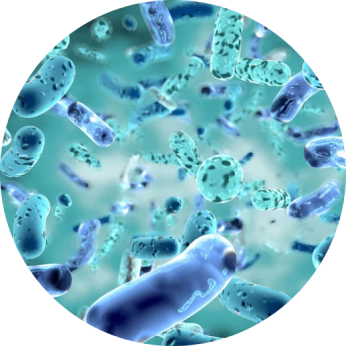
What is GLP-1:
Glucagon-like peptide-1 (GLP-1) is a hormone that occurs naturally in the body and helps regulate blood sugar, digestion, and appetite. It’s produced in the intestinal epithelial endocrine L-cells and released after eating causing reduced appetite and the release of insulin, regulating appetite and food intake.
What Happens If I have too little Glucagon-Like Peptide 1?
It has been suggested that too little glucagon-like peptide 1 released after a meal may increase the likelihood of weight gain. Since glucagon-like peptide 1 reduces appetite after a meal, if the body releases less of this hormone, individuals may eat more during a meal and are more likely to snack between meals.
Akkermansia potentially can increase GLP-1 and insulin secretion while aiding in weight loss.
Akkermansia muciniphila (A. muciniphila) is a gut bacteria that may help with weight loss and obesity through a variety of mechanisms:
- Hormones: A. muciniphila may affect hormone levels like GLP-1 and PYY, which can suppress appetite and control food intake.
- Fat metabolism: A. muciniphila can control fat accumulation and adipose tissue metabolism.
- Glucose homeostasis: A. muciniphila can improve glucose homeostasis by reducing insulin resistance, fasting glucose, and adiposity.
- Gut barrier: A. muciniphila can help maintain a healthy gut barrier.
- Mucus layer: A. muciniphila can help thicken the mucous layer.
- Antimicrobial compounds: A. muciniphila can help produce antimicrobial compounds that kill pathogens.
- Inflammation: A. muciniphila can help inhibit low-grade intestinal inflammation.

